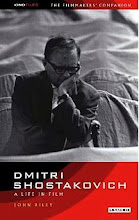Unsurprisingly, Avatar (left) is coming in for a bit of similar treatment. There's already been a 'heated debate' about whether or not it rips off the Strugatskys' World of Noon books (1961-85).
In this post-, even anti-imperialist series,

set in the 22nd-century, the planet Pandora is filled with fantastical flora and fauna. In the fifth book, Disquiet (Беспокойство, 1965) humans set up a laboratory to study the mysterious biosphere but thereafter the book and the film only fit where they touch.
English translations (mostly from Macmillan) appeared in the 1970s and 1980s. But, despite some attempts to stir up a controversy (evil westerners ripping off a Russian icon), the surviving Strugatsky (Boris) seems sanguine, unsurprisingly since, after the death of brother Arkady, he approved of a collection of other writers' tales set in the Noon universe.
Anyway, bunking off from Paradjanov duties yesterday, I went to see Avatar. This isn't the place for an in-depth review. Briefly: it's a great experience but a pretty poor film that mixes up the Mayans, Yggdrasil and any other myths that came to hand. One (unintentional?) moment of hilarity came with the apparently serious use of the word "unobtainium" (hopefully Cameron cleared that trademarked name!)
But I was struck by the music.
As you might expect, it was by James Horner, who isn't entirely unfamiliar with accusations of - shall we say - being .... errrrrr .... 'overly-influenced' by other composers. Still, the usual 'victims' are Khachaturian, Shostakovich and Prokofiev, and as they say, if you're going to steal (and who says he is stealing - certainly not me!) steal from the best.
Musically, it's a bit of a hodge-podge. With the percussion and ethnic chanting I occasionally thought it was going to break into something like Karl Jenkins' Adiemus.
But then - leaping lizards - there's a fantastic theme for the Na've tribe. Damn, it sounded familiar. So I upset Melissa by humming it a bit too loudly in the few quiet bits of the film to remind myself and - yes - it's definitely hovering around Kutuzov's theme from Prokofiev's War and Peace - 47 seconds into this:
Now, sometimes things like that are unconscious and sometimes they have a meaning. Hans Zimmer convincingly argued that his Gladiator 'borrowings' from temp-track standby, Holst's Mars, were a deliberate counterpart to Ridley Scott's ironic references to Triumph of the Will.
Actually in this case, I'm willing to give Horner, the benefit of the doubt (or a get-out-of-jail-free card). Sadly the Youtube clip of the end of the Bolshoi production of War and Peace can't be embedded but the chorus takes up Kutuzov's theme to sing:
We came to fight to the death. To fight to the death, the people came forward. With our blood we have defended Russia. We have defended our mighty land. Our Field Marshal led us onward, led us rightly into battle for our country.
Compare Kutuzov's theme to Avatar - hop to around 5'10" in this compilation (though you'll have to wait for it to buffer), where it begins to gel.
Find more videos like this on Soundtrack Fans
Find more videos like this on Soundtrack Fans
Perhaps Horner is drawing a parallel between the Napoleonic attack on Moscow and the events in Avatar? Perhaps so - in both cases the victims strategically withdraw to come back with renewed vigour.
Then again, Horner also seems to have been rethinking his music for Glory (1989), but what Avatar's got to do with the American Civil War, I don't know.
Beyond that, it's not for Horner to explain why Prokofiev - himself an inveterate self-devourer - used Kutuzov's theme in Ivan the Terrible (1944) - he was working on War and Peace at around the same time - in a more downbeat version, as a lament for the Tartar steppes.
Obviously it works for Horner: Avatar has picked up his tenth Oscar nod. As far as the Academy is concerned the film itself is probably like Goldman-Sachs - too big to fail, so will pick up the statue. Might Horner join in the celebrations? Perhaps - he won for Cameron's last outing, Titanic.
But then again, given the film's story and its subsequent commercial success, perhaps Horner would have been better quoting this:

